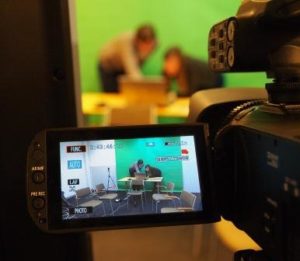
Flinders University is using its cutting edge digital technology this week to host students and staff from four universities on four continents at a virtual ‘Glocal Classroom’.
The event reinforces a strong relationship between Flinders University and Malmo University, which has sent a high level delegation headed by Deputy Vice-Chancellor Professor Cecilia Christersson.
The Flinders University Glocal Classroom is part of a world series of seminars under the Glocal Classroom initiative, which aims to build a global platform for collaboration and interchange in web-based learning.
The initiative was conceived in the Malmo University Communication for Development program, where live seminars of several days are regularly broadcast online to distance students who participate through Skype, monitored chat rooms and other means.
A group of nine staff members from Malmo University is at Flinders to collaborate with Professor Colin Carati (Information Services) and Professor Susanne Schech from the School of International Studies.
The workshop is being run over 24 and 25 November, with a number of related meetings to explore ways forward for this approach to learning.
The content of the Flinders workshop has been designed by a team of academics from the School of International Studies to examine a range of issues affecting the youngest state in Asia within a region which is undergoing rapid economic growth and social transformation.
The first day is a conference with experts from several Australian universities presenting on current issues in Timor-Leste, while the second day is an interactive workshop where on-campus and online students will work together on a policy scenario designed by Dr Maryanne Kelton, Senior Lecturer in International Relations.
Flinders has some of the best digital capability in Australia, thanks to its partnership with the global networker Cisco.
“This workshop will showcase Flinders University’s outstanding digital resources and investment and bravely explore novel and best-practice approaches to learning enabled by digital technologies,” Professor Richard Constantine (Pro-Vice Chancellor Information Services) said.
“This technology enables us to create a rich learning environment for students that brings them in direct contact with scholars and policy makers,” Professor Schech said.

